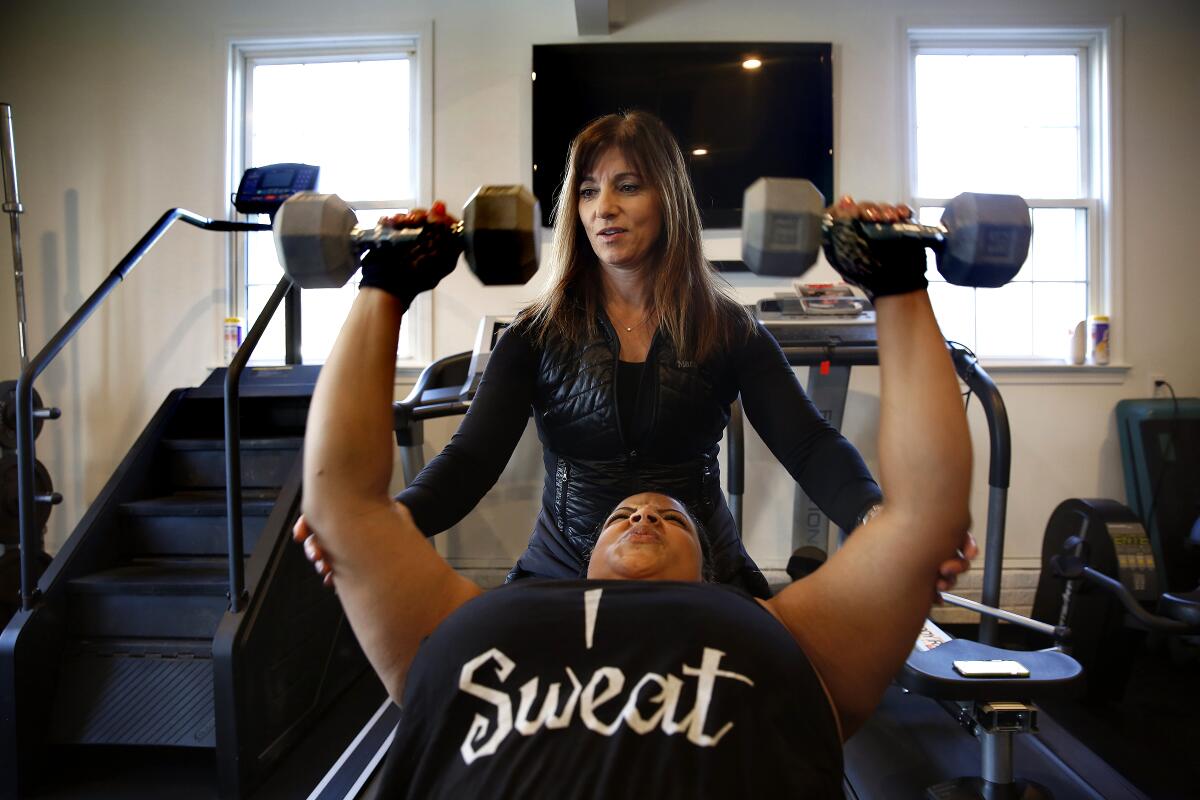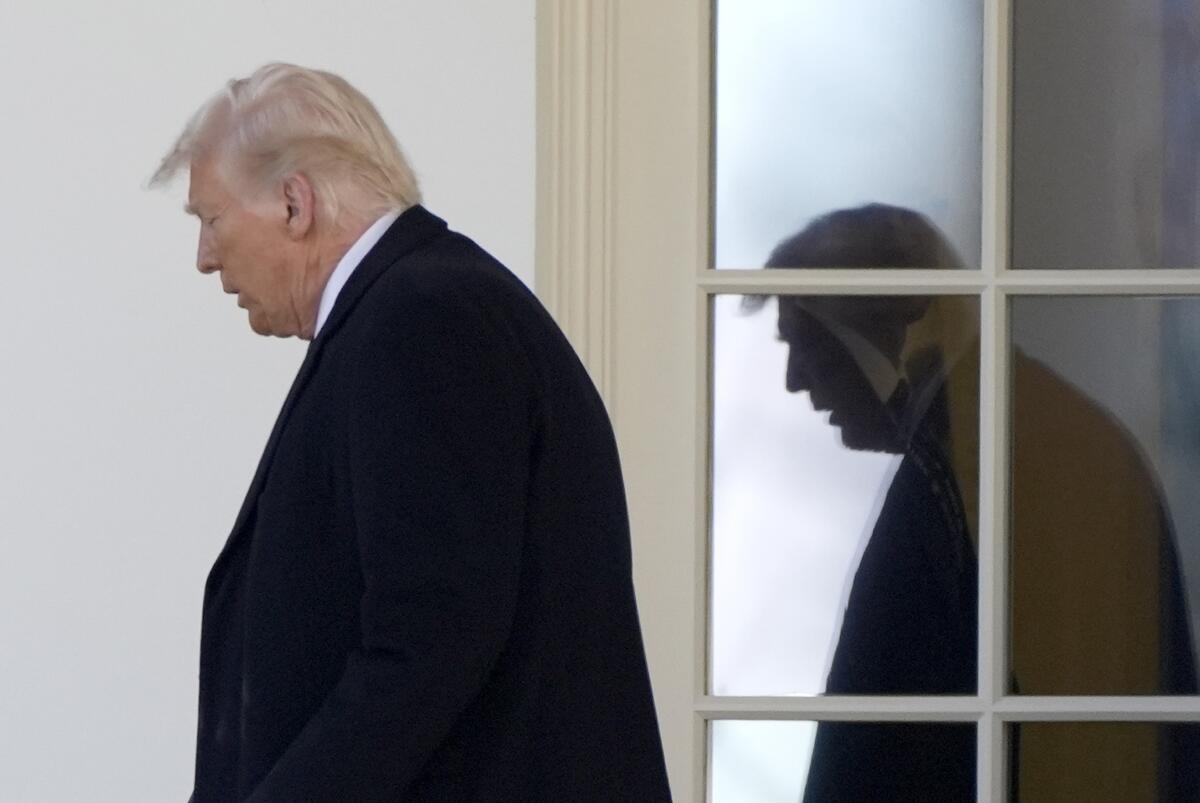WASHINGTON —
Peggy Hayes thought she saw something amazing eight years ago in Donald Trump, a politician who knew how to make the political system, news media and the culture react to him.
He would be the powerful father figure for a nation that felt “un-babysat,” she said at the time.
Hayes, a 62-year-old personal trainer from a politically volatile region of Virginia, was an early Trump supporter — before he secured the Republican Party nomination — and the subject of a Times profile on what was then a burgeoning movement.
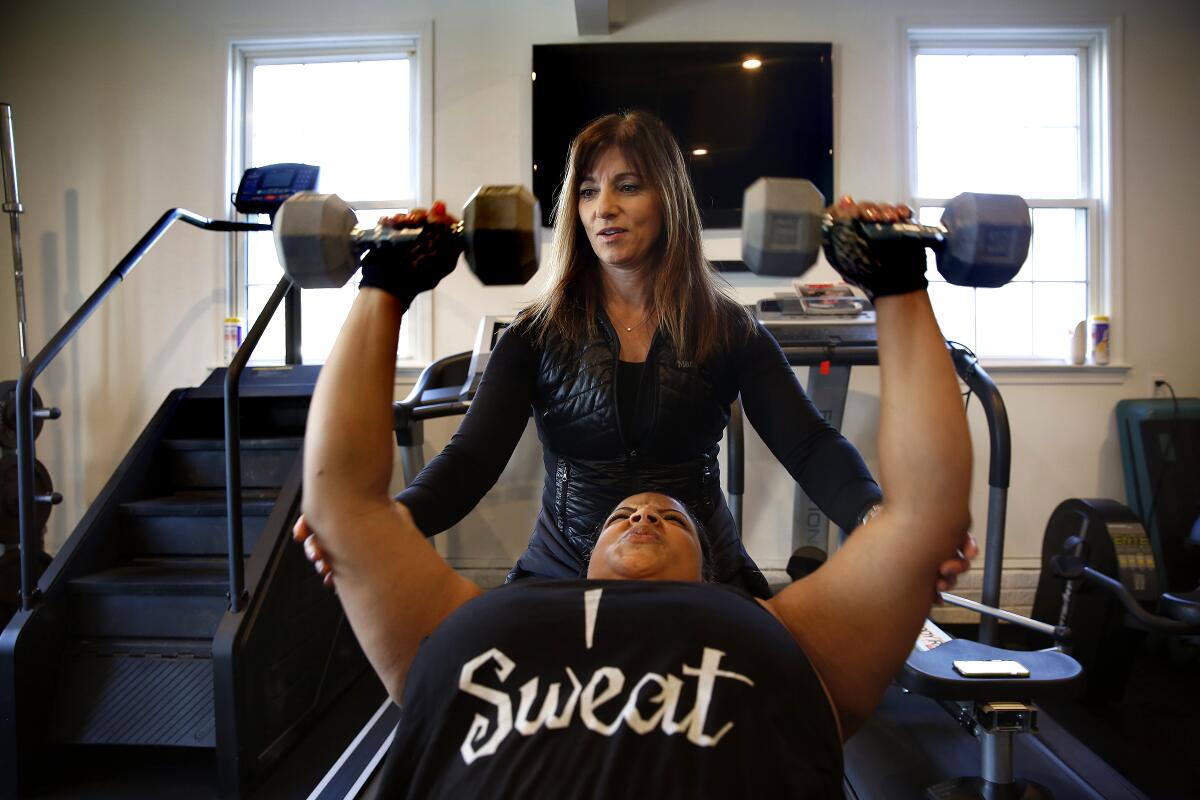
Peggy Hayes gives direction and spots for Megan Tigg at her home gym in Fredericksburg, Va. Life has changed for Hayes, pictured in 2016, but she still supports Trump.
(Carolyn Cole / Los Angeles Times)
Hayes has been through a lot since then — including two moves, the birth of a grandchild and a workplace injury — and her views on Trump have evolved. But she remains a supporter, albeit a less zealous one. And her perspective remains valuable in understanding how and why Trump remains a political force despite an insurrection, two impeachments, multiple criminal charges and convictions that would make his election unprecedented.
“I feel like we’re in the same position,” she said in a recent interview. “You feel like the democracy is somewhat lost at times, where it’s less in the hands of the people.”
That does not mean Hayes is on board with Trump’s persistent and false claims that the 2020 election was stolen. She hedges a bit on that question. It’s more a feeling of being overwhelmed in a fast-moving society, where issues come and go so quickly, it seems to her, that regular people have no time to deliberate and react by the time the government makes a decision.
“We’re on to the next thing, right away,” she said.
Critics might argue that Trump has something to do with that with his stream-of-consciousness rallies, divisive social media posts and his own promises to act is a dictator on his first day in office. But Hayes sees it differently. She believes people were more patriotic and less consumed by the day-to-day need for economic survival when he was president, because inflation had yet to increase prices on basic needs such as groceries and rent.
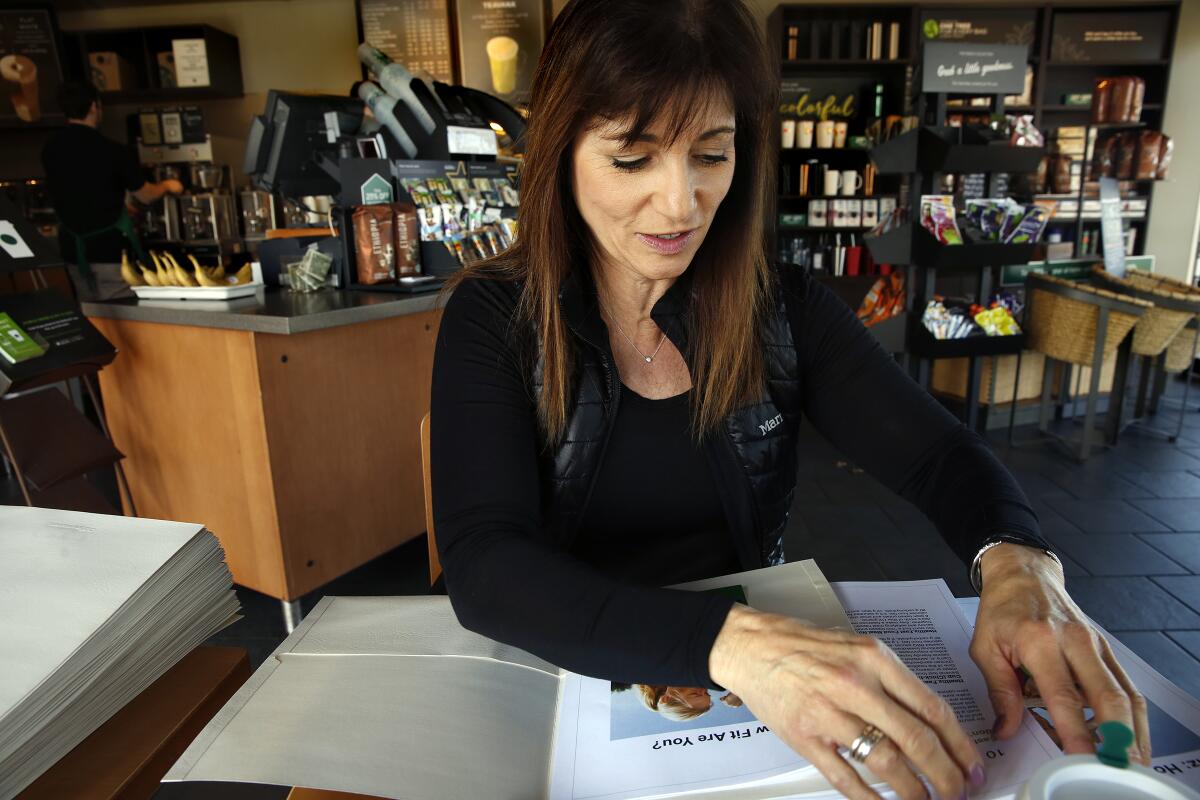
Hayes’ finances have improved in the last eight years, but she still feels stretched, especially as prices have escalated.
(Carolyn Cole / Los Angeles Times)
That’s complicated too. Many Americans struggled during the pandemic — with polls at the time showing disillusionment with Trump’s stewardship — and the economy has recovered well under President Biden, according to government indicators.
Hayes’ life has also taken a few turns. When the pandemic killed her personal training business in Fredericksburg, Va., she moved to Florida, taking a job at a sports medicine clinic near Jacksonville.
She got health insurance for the first time. She had a freak finger injury that led to an infection, numerous surgeries, a workers compensation battle and a year of lost work. She found a relationship with the man renting her house in Virginia and moved back home about two years ago.
She resumed her personal training business and is making more money than she did eight years ago, about $60,000 a year, and has an Obamacare insurance plan, after rejecting it previously. Her finances are better than they were eight years ago, but she still feels stretched, especially as prices have escalated, she said.
She no longer sees Trump as the dominant media figure he was eight years ago either.
“He was the person who controlled the narrative,” she said. “The things he was saying were turning the head of how interviews happened. He was controlling everything at that time.
“Now it seems to have flipped over, where he’s become almost like the underdog,” she continued. “He’s getting his feet on the fire all the time, and it seems like nobody else is.”
Hayes rejects the idea that Trump’s behavior has been unprecedented and put him in this position. She blamed former Speaker Nancy Pelosi for failing to hold back the Jan. 6, 2020, mob, for example, absolving Trump for inciting it with false claims that he won the election. Hayes instead expressed surprise that so many rioters were given jail sentences.
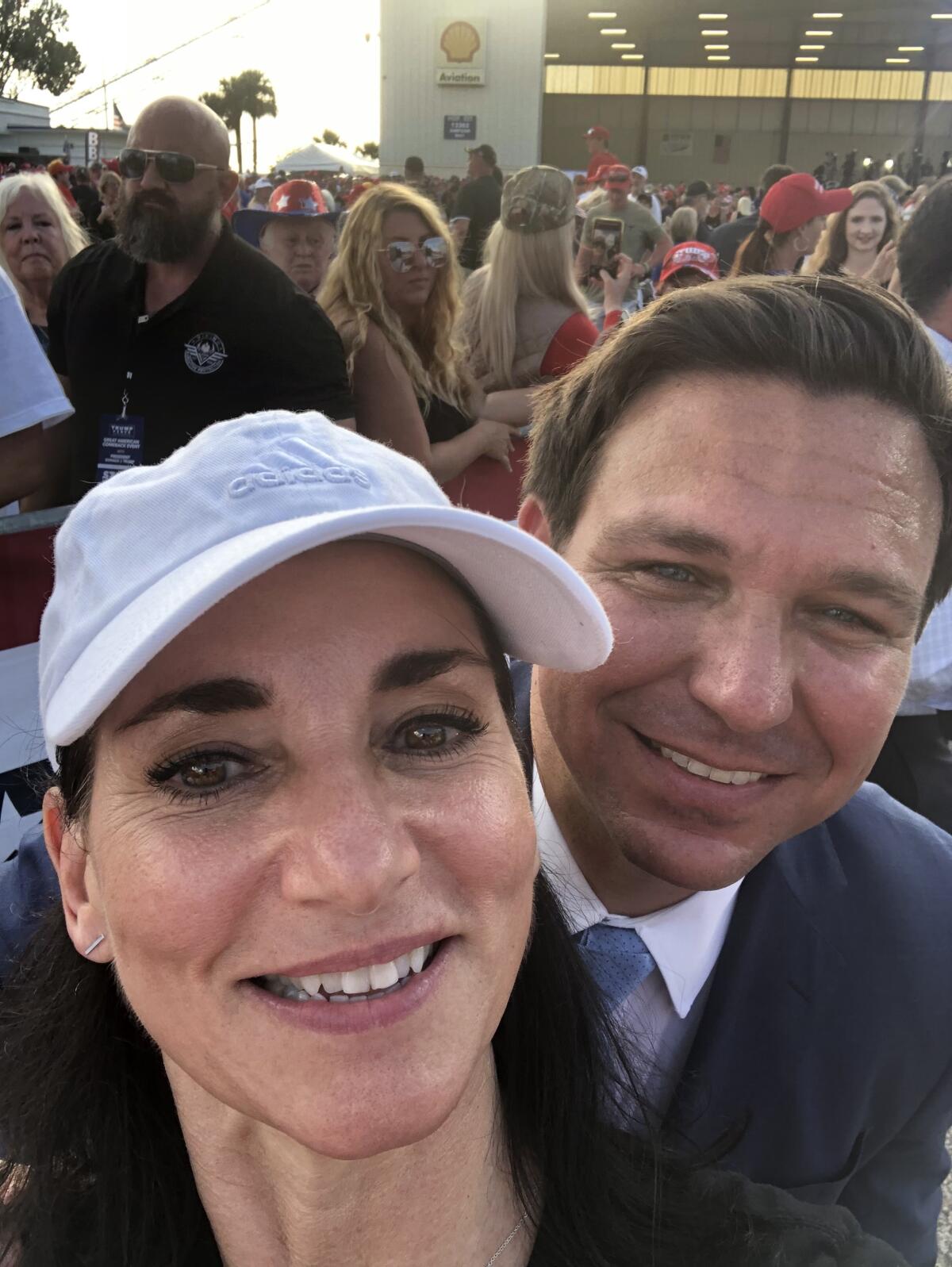
Hayes takes a selfie with Florida Gov. Ron DeSantis at a Trump rally in Jacksonville in 2021.
(Peggy Hayes)
“It’s almost like he’s playing into the cards that have been handed him,” she said of Trump’s ability to exploit the media and understand the “big machine.”
Still, Hayes is not as enthusiastic as she was eight years ago, when Trump was a nonstop conversation in her life. Her favorite personal training clients, an older couple who loved to talk about Trump, have both died. She has quit using Facebook.
“I was more interested and excited,” she said. “I want Trump in that position, because he did do well for a time, and I’m not overly thrilled with what’s happened in the time that this last administration has been in charge.”
She knows not everyone shares her perspective. Her two grown daughters are more liberal than her, though she tends to avoid political discussions with her family, she said.
And she received a raft of emails, Facebook messages and letters after she was profiled by The Times in 2016. Many called her ignorant. Some, seeing she had a tough financial position, offered her a job.
“I had a lot of anger towards me, saying that I was uninformed,” she said.
She acknowledges that, like most people, she doesn’t pay attention to every wrinkle of news. She was surprised by all of the blowback and sad, but not bitter, she said.
“All the things as Americans, we’ve all tragically had to get through together, it has not brought us together,” she said. “It’s far from brought us together.”
